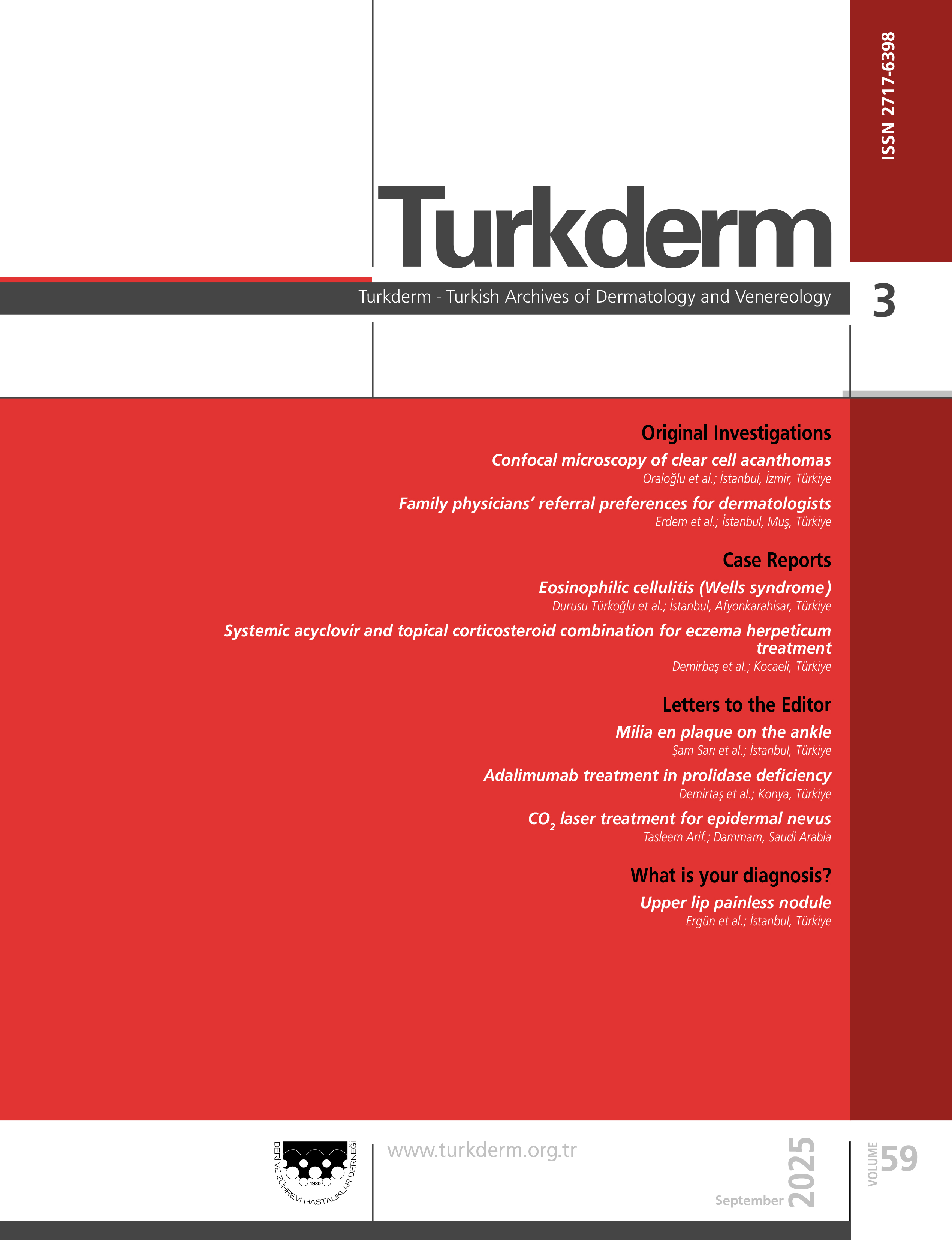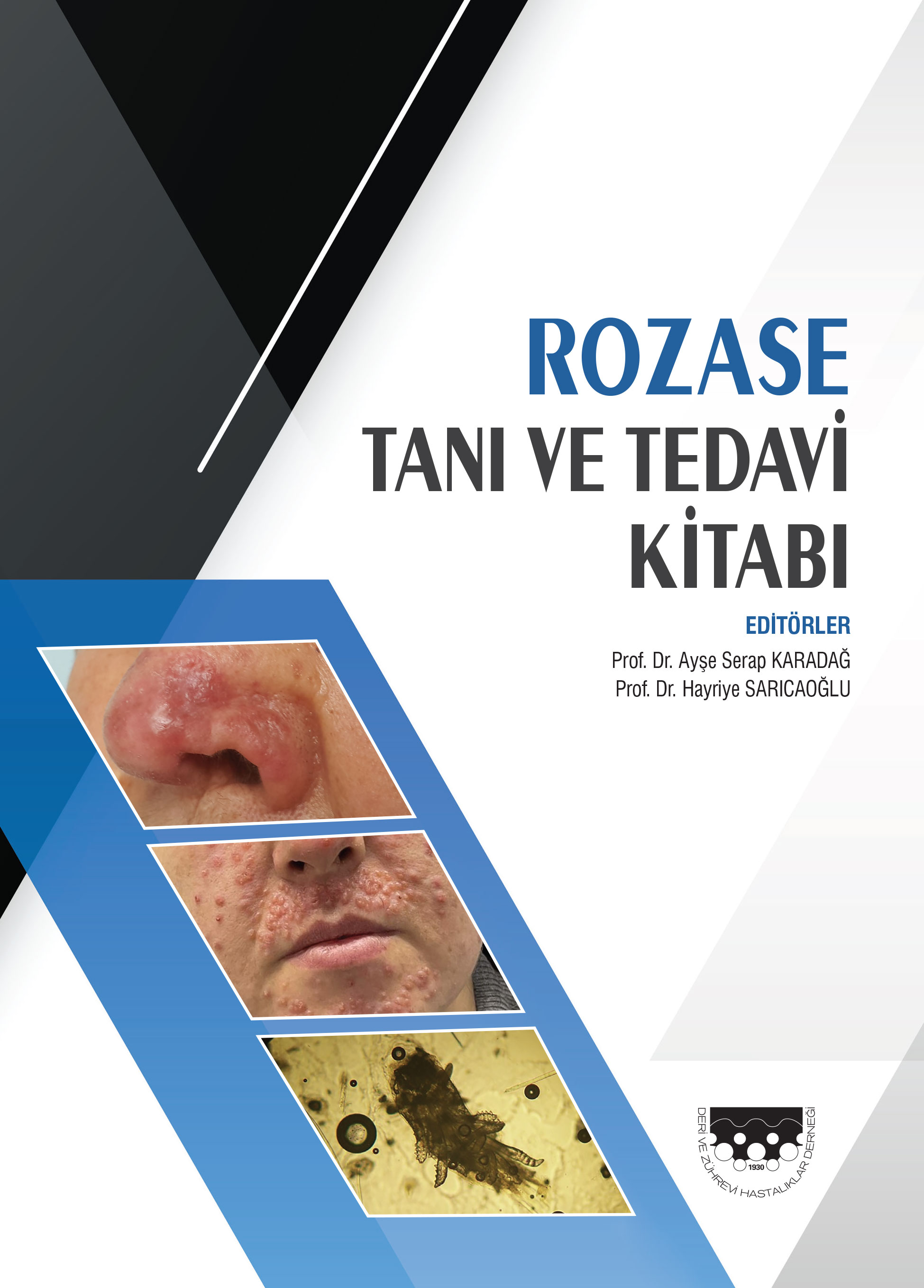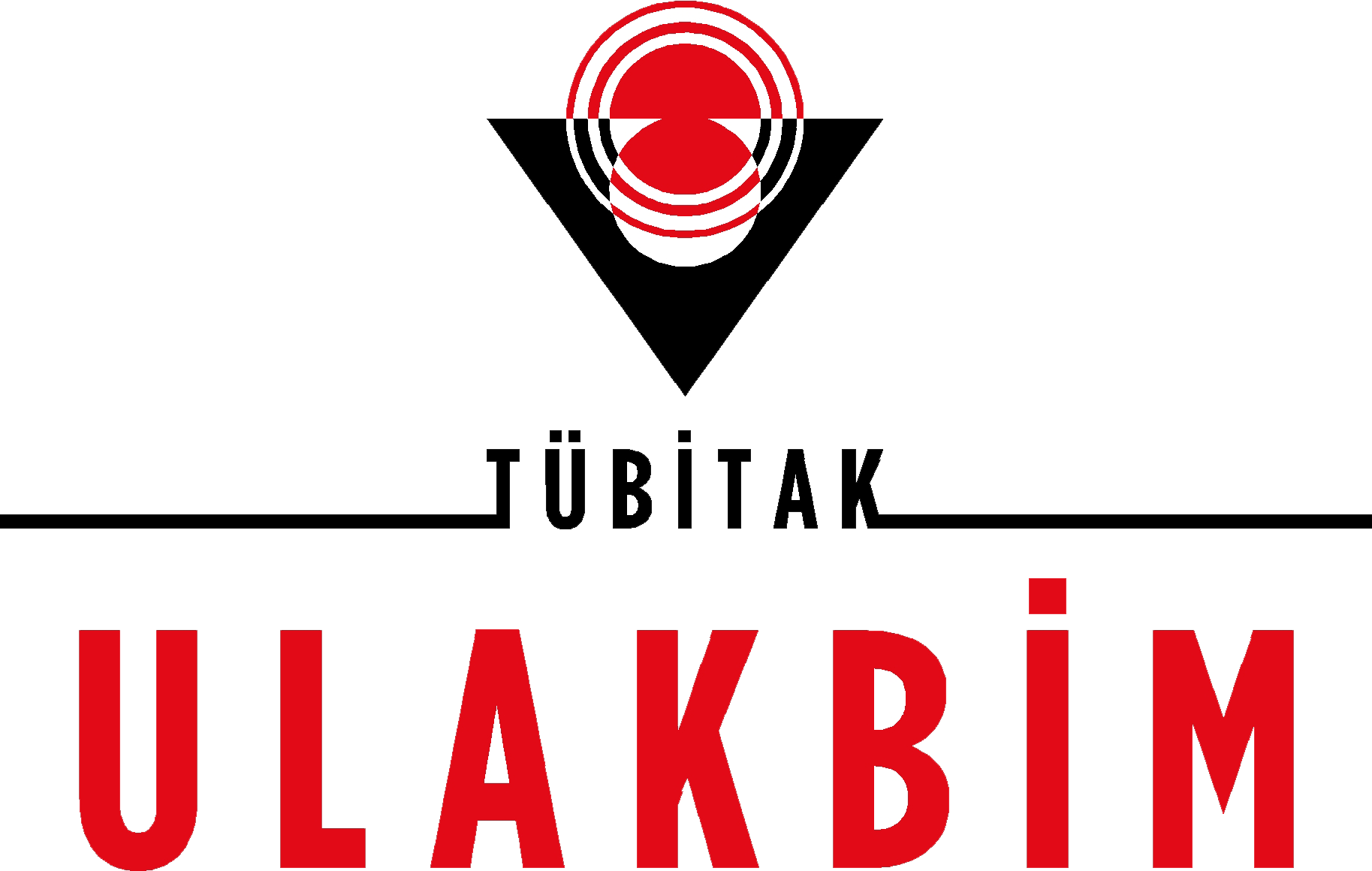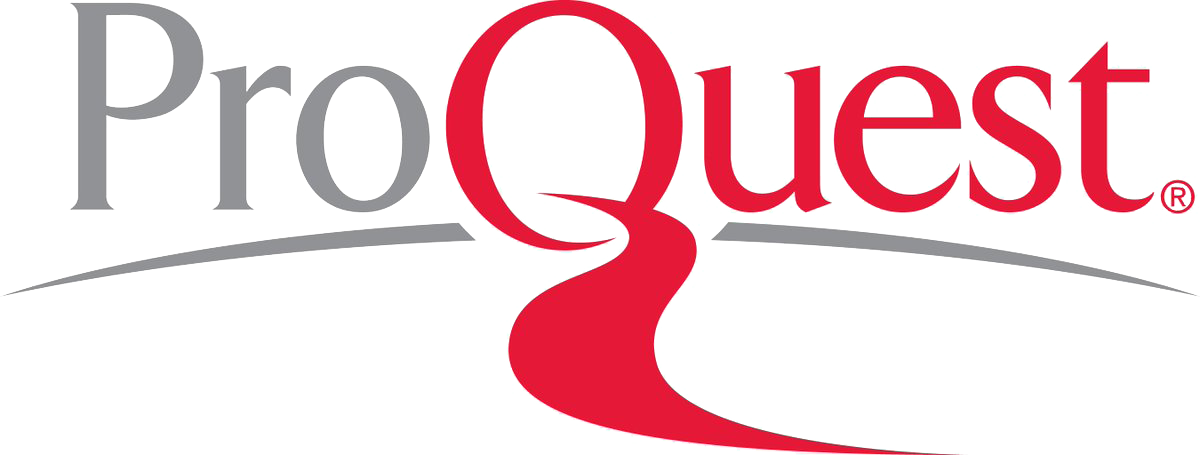Does counseling have an effect on sun protection behaviors and early detection of skin cancer in middle-aged and older Turkish people?
Atiye Oğrum1, Osman Demir21Tokat Gaziosmanpaşa University Faculty of Medicine, Department of Dermatology and Venereology Tokat, Turkey2Tokat Gaziosmanpaşa University Faculty of Medicine, Department of Biostatistics Tokat, Turkey
Background and Design: The most important avoidable risk factor for skin cancer is ultraviolet light exposure. The aim of this study is to evaluate the frequency and the effect of counseling on sun protection behaviors and early detection of skin cancer. Materials and Methods: Five hundred individuals aged 45-75 years participated in this cross-sectional survey between February 6th and March 07th of 2019. Participants were directed to filled out a questionnaire to understand their sun protection behaviors and learn whether they receive counseling on sun protection and early detection of skin cancer. Results: Out of the 500 subjects, 283 (56.6%) were female and 217 (43.4%) were male. The mean age was 56.65±9.24 years (45-75 years). Two hundred and thirty-four (46.8%) respondents reported having skin-cancer risk factors. The rates of counseling on sun protection and behavior of sun protection were 16% and 39.4%, respectively. Sun protection counseling was significantly associated with self-reported skincancer risk factors and being a female (p<0.001; p=0.048, respectively). The rate of counseling on early detection of skin cancer was low (skin selfexamination: 12%; moles monitoring: 11.8%; annual checkup: 13.2%). The counseling on sun protection and early detection of skin cancer were significantly associated with behaviors of sun protection and early detection of skin cancer (p<0.001; p<0.001, respectively). The older age had a negative effect on the counseling and behaviors (p=0.047; p=0.005, respectively), however, high level of education had a positive effect (p=0.024; p<0.001). Conclusion: Counseling by healthcare professionals on primary and secondary preventions for the middle-aged and older people seems to be insufficient. Further studies on this issue may be beneficial on prevention and early detection of skin cancer.
Keywords: Middle age, older adult, sun protection, counseling, skin cancer, early detection
Orta ve ileri yaş Türk insanında güneşten korunmaya yönelik danışmanlığın güneşten korunma davranışları ve deri kanserinin erken tanısına etkisi var mıdır?
Atiye Oğrum1, Osman Demir21Gaziosmanpaşa Üniversitesi Tıp Fakültesi, Deri ve Zührevi Hastalıkları Anabilim Dalı2Gaziosmanpaşa Üniversitesi Tıp Fakültesi, Biyoistatistik Anabili Dalı
Amaç: Deri kanserinin önlenebilir en önemli risk faktörü ultraviyole ışın maruziyetidir. Bu çalışmanın amacı, danışmanlığın güneşten korunma davranışları ve deri kanserinin erken tanısına olan etkisini değerlendirmektir. Gereç ve Yöntem: Bu kesitsel anket çalışması 06 Şubat-07 Mart 2019 tarihleri arasında, 45-75 yaş aralığındaki 500 birey ile yapıldı. Katılımcılara, güneşten korunmaya yönelik davranışları ile güneşten korunma ve deri kanserinin erken tanısıyla ilgili danışmanlık alıp almadıklarını öğrenmeye yönelik hazırlanan anket cevaplatıldı. Bulgular: Çalışmaya katılan 500 kişinin 283ü (%56,6) kadın, 217si (%43,4) erkek olup, yaş ortalaması 56,65±9,24 yıl (45-75 yıl) idi. Katılımcıların 234ü (%46,8) deri kanseri risk faktörü varlığını beyan etti. Güneşten korunmaya yönelik danışmanlık alma ve davranış sergileme oranları sırasıyla, %16 ve %39,6 idi. Güneşten korunmaya yönelik danışmanlık alma, deri kanseri risk faktörü beyanı ve kadın olma ile anlamı oranda ilişkiliydi (sırasıyla, p<0.001; p=0,048). Deri kanserinin erken tanısına yönelik danışmanlık alma oranı düşüktü (kendi kendine deri muayenesi: %12; ben takibi: %11,8; yıllık kontrol: %13,2). Güneşten korunma ve deri kanseri erken tanısına yönelik danışmanlık alma durumları, güneşten korunma ve deri kanseri erken tanısına yönelik davranış sergileme durumu ile anlamlı oranda ilişkiliydi (sırasıyla; p<0,001, p<0,001). İleri yaşın danışmanlık alma ve davranışlar üzerine negatif yönde etkisi varken (sırasıyla; p=0,047; p=0,005); yüksek eğitim düzeyi pozitif yönde etkiliydi (p=0,024; p<0,001). Sonuç: Orta ve ileri yaş grubunda, sağlık çalışanlarınca uygulanan birincil ve ikincil önlemlere ilişkin danışmanlık yetersiz gözükmektedir. Bu konudaki faaliyetlerin geliştirilmesi, deri kanserinin önlenmesi ve erken tanısında fayda sağlayabilir.
Anahtar Kelimeler: Orta yaş, ileri yaş erişkin, güneşten korunma, danışmanlık, deri kanseri, erken tanı
Manuscript Language: English























